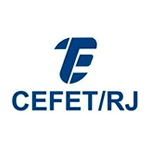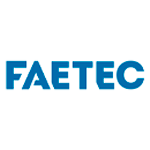Aplicação de um Minerador de Emoções em Fóruns de Discussão de um Massive Open Online Course (MOOC) Brasileiro: uma Abordagem Utilizando o Algoritmo Naive Bayes
DOI:
https://doi.org/10.18264/eadf.v12i2.1732Resumo
Em gradativa evolução devido à disseminação dos ambientes virtuais de aprendizagem, os MOOCs disponibilizam aos participantes inúmeros meios de interação. Dentre esses meios, destaca-se o fórum de discussão, ambiente que registra diferentes informações a respeito do engajamento dos alunos. Contudo, realizar a leitura de todas as postagens é uma tarefa difícil, pois os MOOCs costumam ter uma faixa muito alta de alunos matriculados. Nesse sentido, a mineração de textos pode auxiliar professores a obter conhecimentos relevantes sobre as postagens dos alunos. Levando em consideração essas discussões, neste estudo, foi realizada a implementação de um minerador de emoções para fóruns MOOC, utilizando a linguagem de programação Python, com o objetivo de identificar e analisar os sentimentos que cada aluno expressa ao interagir com os colegas nesses ambientes. Os resultados obtidos, em experimentos iniciais, indicam que o minerador mostrou-se eficiente na extração das emoções dos alunos, alcançando uma acurácia de 40%. Além disso, mostraram que sentimentos positivos, como alegria e surpresa, refletem na conclusão dos MOOCs, enquanto sentimentos negativos, como tristeza e raiva, são indicativos de abandono do curso.
Palavras-chave: MOOCs. Fóruns de discussão. Minerador de emoções. Algoritmo Naive Bayes.
Downloads
Referências
DICIONíRIO ONLINE. 2020. Disponível em: https://www.dicio.com.br/ . Acesso em: 19 abr. 2020.
EKMAN, P. An argument for basic emotions. Cognition & Emotion, v. 6, n. 3, p. 169-200, 1992.
LIU, H.; LIEBERMAN, H.; SELKER, T. A Model of Textual Affect Sensing Using Real-World Knowledge. In: Proc. Eighth Int"™l Conf. Intelligent User Interfaces, 2003, p.369-374.
LIU, Z. et al. Sentiment recognition of online course reviews using multi-swarm optimization-based selected feature. Neurocomputing, v. 17, n. 12, p. 11-20, 2016b.
LIU, Z. et al. Emotion and Associated Topic Detection for Course Comments in a MOOC Platform. In: International Conference on Educational Innovation through Technology (EITT), Taiwan, China, 2016a, p.15-19.
MA, C.; PRENDINGER, H.; ISHIZUKA, M. Emotion Estimation and Reasoning Based on Affective Textual Interaction. In: First Int"™l Conf. Affective Computing and Intelligent Interaction (ACII "™05), 2005, p. 622-628.
PALLOFF, R. M.; PRATT, K. O aluno virtual: um guia para trabalhar com estudantes on-line. Porto Alegre: Artmed, 2004.
PALTOGLOU G.; THELWALL, M. Twitter, MySpace, Digg: Unsupervised Sentiment Analysis. Social Media, in ACM Transactions on Intelligent Systems and Technology, vol. 3, no. 4, 2012.
SíNCHEZ, L. P. El foro virtual como espacio educativo: propuestas didácticas para su uso. Verista Quaderns Digitals Net, n.40, p.1-18, 2005. Disponível em: http://www.quadernsdigitals.net/datos_web/hemeroteca/r_1/nr_662/a_8878/8878.htm Acesso em: 27 mar. 2019.
SOUZA, V. F.; PERRY, G. T. Mineração de Texto em MOOCs: Análise da Relevância Temática de Postagens em Fóruns de Discussão. RENOTE - Revista Novas Tecnologias na Educação. Porto Alegre, v. 17, n. 3, p. 204-2013, 2019.
STRAPPARAVA, C.; VALITUTTI, A. WordNet-Affect: an affective extension of WordNet. In: 4th International Conference on Language Resources and Evaluation (LREC "™04), Lisbon, Portugal, 2004, p. 1083–1086.
THELWALL, M.; WILKINSON, D.; UPPAL, S. Data mining emotion in social network communication: Gender differences in MySpace. Journal of the American Society for Information Science and Technology, v. 61, n. 1, p. 190-199, 2010.
XING, W.; TANG, H.; PEI, B. Beyond positive and negative emotions: Looking into the role of achievement emotions in discussion forums of MOOCs. The Internet and Higher Education, v. 43, p. 1-9, 2019.
WILSON, T.; WIEBE, J.; HWA, R. Just how mad are you? Finding strong and weak opinion clauses. In: 21st Conference of the American Association for Artificial Intelligence, San Jose, US, 2004, p. 761–769.
ZHENG, S. et al. Ask the Instructors: Motivations and Challenges of Teaching Massive Open Online Courses. In: 19th Conference on Computer Supported Cooperative Work & Social Computing, 2016, p. 206-221.
Downloads
Publicado
Como Citar
Edição
Seção
Licença
Copyright (c) 2022 EaD em Foco

Este trabalho está licenciado sob uma licença Creative Commons Attribution 4.0 International License.
Todos os artigos publicados na Revista EaD em Foco recebem a licença Creative Commons - Atribuição 4.0 Internacional (CC BY 4.0). Todas as publicações subsequentes, completas ou parciais, deverão ser feitas com o reconhecimento, nas citações, da Revista EaD em Foco como a editora original do artigo.













